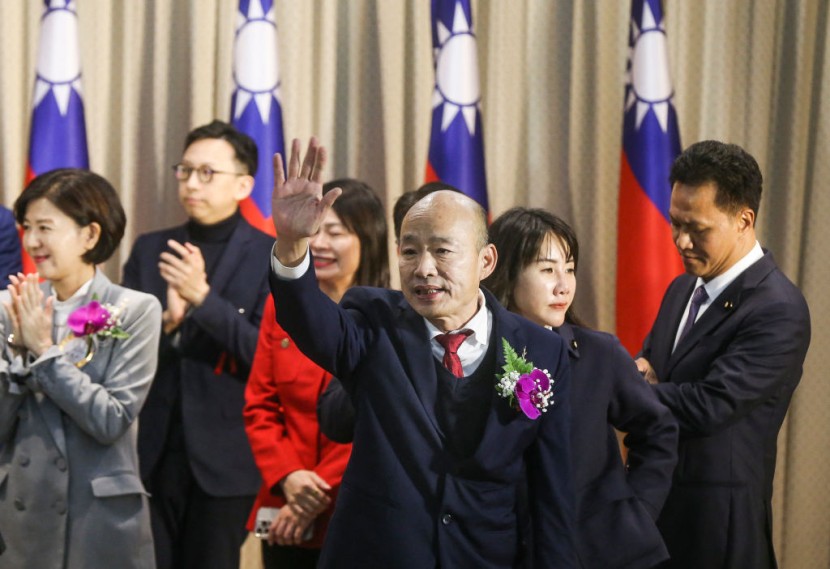Taiwan's parliament elected Han Kuo-yu, a former presidential candidate from the largest opposition party, the Kuomintang (KMT), as its new speaker on February 1. Han's role will encompass hosting visiting foreign lawmakers, and the ruling party, the Democratic Progressive Party (DPP), has expressed concerns over his perceived pro-China stance.
Last month, the DPP's Lai Ching-te won the presidential election but failed to secure a majority in the parliament. This shift in political dynamics highlights the complex landscape in Taiwan, where the DPP and the KMT have traditionally dominated the political scene, as per Aol.
Taiwan's Politics

In the legislative election, neither the DPP nor the KMT obtained enough seats for a majority in the 113-seat legislature. The Taiwan People's Party (TPP), led by Mr Ko Wen-je, emerged as a kingmaker with eight seats, influencing the parliamentary outcome.
Han's election as Speaker occurred in the second round, where he secured 54 votes, defeating his DPP counterpart, You Si-kun, who won 51 votes. This marks a political comeback for Han, who was previously ousted as the mayor of Kaohsiung in 2020 and faced setbacks in his bid against then-President Tsai Ing-wen.
Acknowledging the support of the KMT legislative caucus and two independent colleagues, Han expressed gratitude and pledged to initiate reforms in parliament, dedicating himself to the public's interests. Johnny Chiang, a KMT legislator and former party chairman, assumed the vice-speaker's post.
Han's victory is seen as a strategic move for the KMT, providing them with a check on the incoming Lai administration set to take office in May. Observers suggest that Beijing might find relief with the KMT leading the legislature, considering the party's historical stance on cross-strait relations, according to The Straits Times.
Beijing's Relief Amidst Tensions With Taiwan
Wang Kung-yi, head of the Taiwan International Strategic Study Society, stated that Beijing may feel somewhat relieved with the KMT in control, given its friendlier approach towards the Chinese mainland compared to the DPP. This development comes amid increased tensions between Taiwan and China, with Beijing regarding Taiwan as part of its territory to be reunited by force if necessary.
While the KMT did not secure an absolute majority in the legislature, it holds strategic alliances with two independent legislators and potential cooperation with the TPP, which is perceived as friendly to Beijing. This collaboration could impact policies unfriendly towards China, particularly those that might intensify cross-strait tensions.
The KMT's influence in the parliament also holds significance in terms of consultations on measures that might require bipartisan support, including annual budgets and substantial payments for US arms deals. The United States, like most countries, does not formally recognize Taiwan as an independent state but is committed to supplying it with weapons and opposes any attempt to forcibly take control of the island.
Legislator Wang Hung-wei of the KMT defined the importance of the speaker's role in resolving tie votes and obtaining disputes between the opposition and administration on divisive issues. Han Kuo-yu's election as Speaker paves the way for possible changes in Taiwan's legislative dynamics, which might have an impact on domestic policies and cross-strait ties, South China Morning Post reported.
Related Article: Mississippi Advances Medicaid Reform for Expectant Mothers









